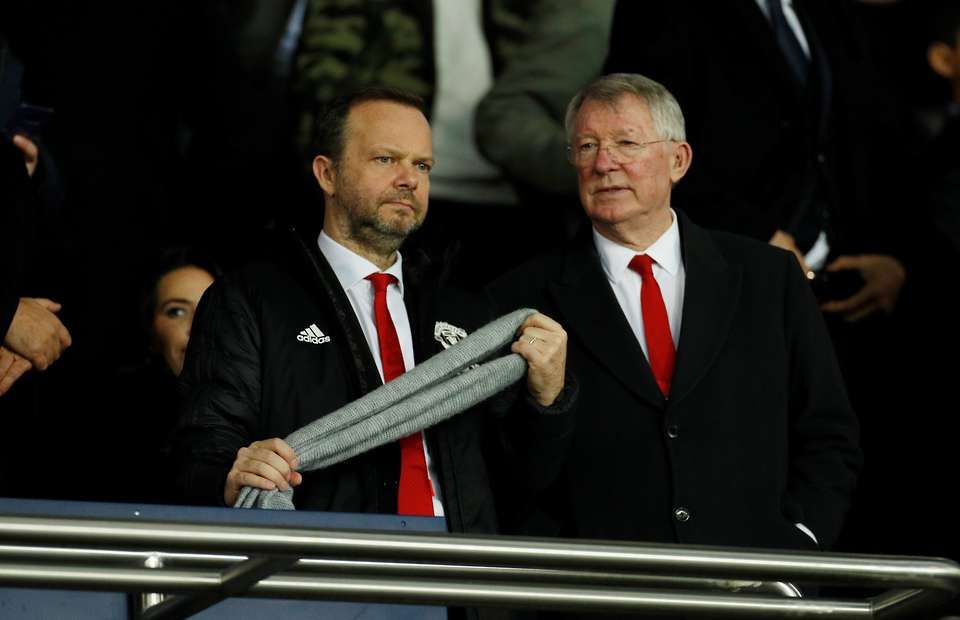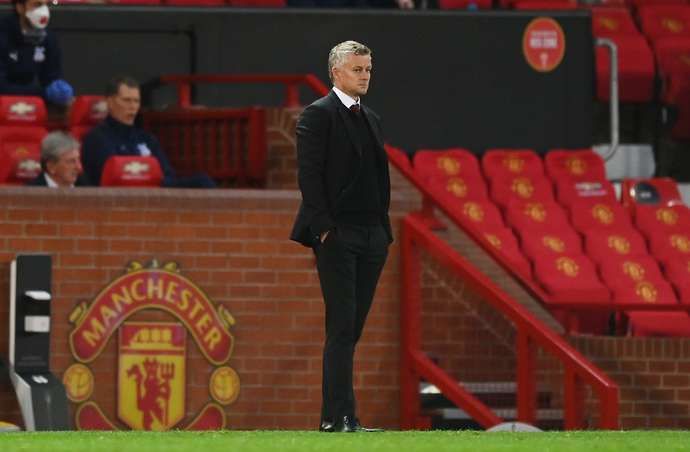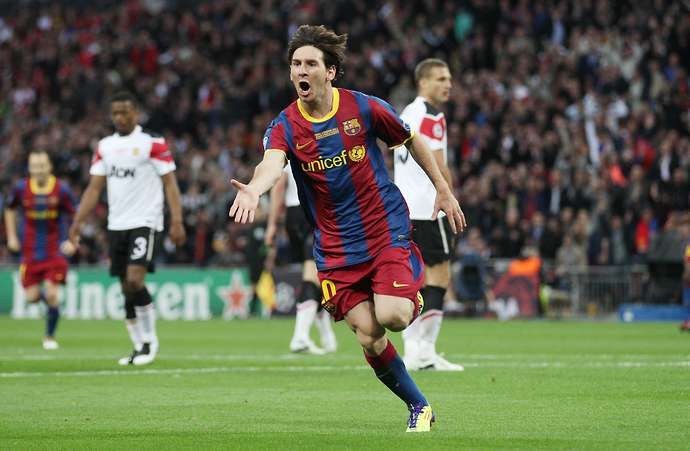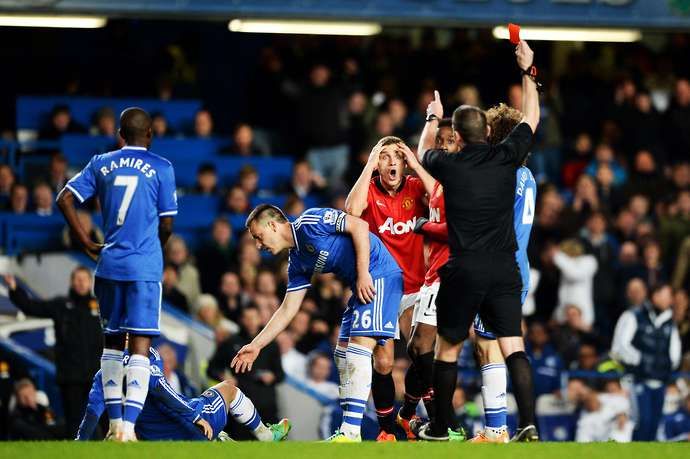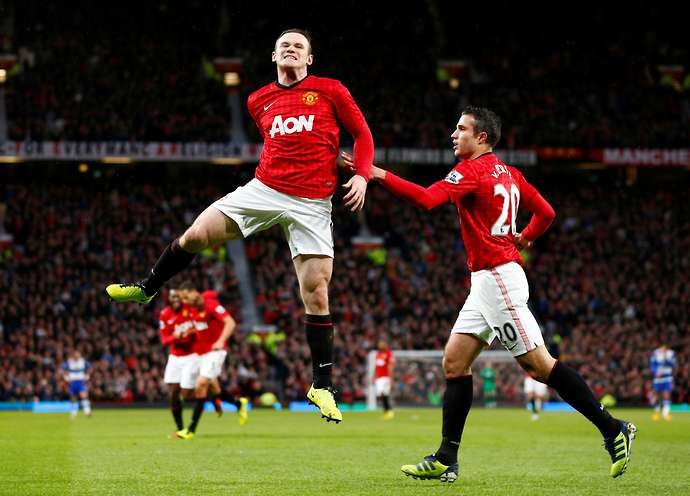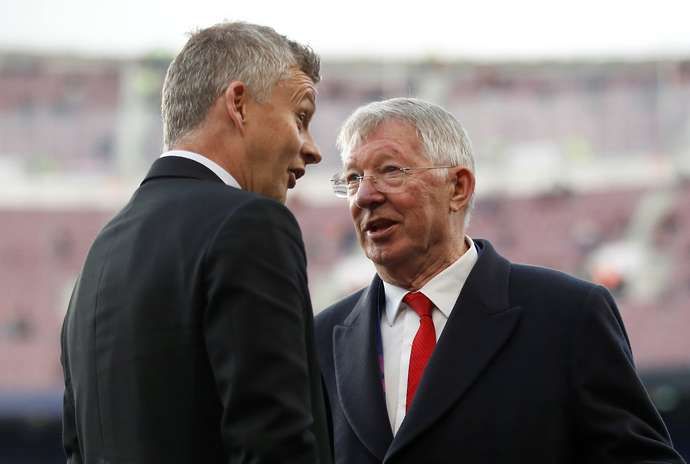In an era of Premier League management defined by the ever-increasing expendability of anyone in the occupation, it is practically unthinkable to suggest any head coach owes a responsibility to the man who might soon replace them to leave an easiness of transition behind.
But consider the analogy of selling your beloved vintage car. To both the buyer and other motorists on the road, you have two moral obligations; firstly, to sell a car that functions properly, without danger of veering off the road at the first sharp corner it faces, and secondly, to ensure the person you’re giving the keys to possesses the capacity to operate it safely - one might even argue, operate it with the efficiency a machine of such beauty deserves.
Of course, if you’re dragged from your car in the middle of the night by unhappy board members, only to witness them hand the keys to someone younger and slicker with a more foreign sounding name who immediately speeds off into the moonlight, rooftop wound down and music blazing, the above will be the least of your concern.
But if you’re choosing exactly when and under what circumstances you’ll be relinquishing the keys to a successor, which is the precise privilege Sir Alex Ferguson enjoyed in 2013, then you surely owe something to the next person to take the wheel, especially if your synonymy with said car is so greatly intrinsic that the engine is half-made from custom-built parts and the cassette deck is stacked with self-recorded compilations of songs from your childhood.
And thus, as that automotive analogy reaches its conclusion, we arrive at the crux of this article. It is simple to blame a manager as clearly out of his depth as Ole Gunnar Solskjaer for Manchester United’s current woes, or even a backroom figure as seemingly spared from accountability as Ed Woodward, or for that matter a club-record superstar struggling to shine like Paul Pogba - those and the Glazers have all played their part in the soap opera that is United’s sharp fall from grace.
And yet the man at the centre of where this mess all started, the great Ferguson himself, continues to evade blame of similar proportion. While that is an inevitable consequence of the combination of his incredible, unrivalled success as Manchester United manager and the fact he hasn’t actually been present - at least not officially - for the Red Devils’ disco-steps along a downward spiral that has manifested in a horrifying start to the new season, Fergie’s figure looms large in the shadows. Once again dabbling in motorised metaphors, many of United’s troubled roads trace back to him.
It is often said that in the post-Ferguson era, United have lacked focus, a clear direction, a sense of identity. Playing styles have fluctuated with each manager and sometimes during reigns themselves, while transfer market activity has been decisively scatter-gun, arrivals fitting no particular template or brand of football, all mish-mashed together in the hope they inadvertently engage in the footballing equivalent of Chrysopoeia. This was no truer than when Marouane Fellaini and Juan Mata, two players as far apart on the midfield spectrum as possible, arrived at Old Trafford in subsequent transfer windows.
But rarely have we asked how strong the United identity pundits and journalists continually allude to - namely the notions of aggressive, gung-ho, attacking football and an ingrained emphasis on developing academy products - truly was during Ferguson’s final few years at Old Trafford. Are 2012/13 or 2010/11, the last two seasons in which United won the title, remembered as particularly vintage campaigns of iconic United football? Were the Red Devils truly a level above the rest of the division? Were United laced with superstar quality and irresistible attackers like during the 1990s and 2000s?
The 2010/11 season saw United draw eleven games and win only five times away from Old Trafford, while they somehow managed to take top spot in late November despite only winning eight of their first 15 matches. The 2012/13 season, meanwhile, was something of a dead rubber. United signed the best goalscorer in the league, Robin van Persie (more on him later), and capitalised on the sheer ineptitude of Manchester City’s first ever Premier league title defence.
Sure, both campaigns contained some truly great moments, and the former saw United reach the Champions League final. But that in itself was something of an indication of the club’s comparative health - they were played off the park by Pep Guardiola’s Barcelona who appeared to belong to a different stratosphere of club altogether, and in the following season United didn’t even qualify from their Champions League group. 2012/13, similarly, saw elimination from the Round of 16.
The signs of decline were already there upon the turn of the decade, and that in part owed to how Ferguson had begun to use his transfer budget and his squad. Flash back to 2007/08, United’s second-greatest season under Ferguson after 1998/99, and the then-Red Devils boss had a clear core group of players - eleven made at least 30 starts in all competitions, while six made at least 40. Fast forward to his final season in charge, and rotation was a much greater theme - only seven made at least 30 starts, while a mere four surpassed the 40 threshold.
The emphasis had changed from a consistent starting XI with a handful of revolving aspects to a far more holistic approach of using specialist players for certain games to counteract specific opponents, and that created two unfortunate consequences for the man who immediately replaced Ferguson, David Moyes.
The first was that the quality became further spread out throughout the squad rather than focused on a core of truly elite individuals, the only real exceptions to the rule being Wayne Rooney and van Persie. The second, and probably more severe, was that for Moyes to achieve similar results with the same squad, he’d need to imitate the very specific qualities that made Ferguson such an exceptional manager; his ability to firstly know in which games the services of his specialist players would be most valuable, and secondly the manner in which he could keep all of them motivated enough to perform when called upon, even when they weren’t being selected for extended periods.
This is something Moyes inevitably struggled with - during no point during his Old Trafford tenure did he select the same starting XI for two Premier League games in a row - and in fairness to the now-West Ham manager, the difficulties in selection were compounded by the fact his most experienced players were counter-intuitively the least reliable.
Nemanja Vidic managed to get himself sent off in two of United’s biggest games of the season, against Chelsea and Liverpool, Rio Ferdinand had suffered an incredibly sudden decline, van Persie spent much of the campaign injured and whereas Ryan Giggs and had played an important cameo the year before, 2013/14 would mark the only season of his career in which he’d fail to score a Premier League goal. Instead, Moyes found himself depending on youngsters Adnan Januzaj and Danny Welbeck.
And yet, that acute failure of United’s senior players to support the new manager shouldn’t have been so surprising, because the squad Moyes inherited was in obvious need of an overhaul. It contained eleven players aged 27 or over, pretty much all of whom had been central figures in United’s last two titles, and pretty much all of whom played along the spine of the team - Rooney and van Persie up front, Michael Carrick and Darren Fletcher in central midfield, Ferdinand and Vidic at centre-half, and even back-up goalkeeper Anders Lindegaard. Five of this cohort were over 30, the oldest - Giggs - being an incredible 39. Serie A numbers.
This is perhaps the most obvious criticism of Ferguson’s part in United’s failed transition towards a future without him - not only the nature of the squad he left behind, but more pertinently the seemingly stark abandonment of any measures to prevent such an ageing squad manifesting in the first place.
Fergie’s ability to recycle and reimagine his teams, chiefly the transition between his two Champions League winning sides, is regarded as his greatest single achievement as United boss, but his failure to renew at the turn of the decade juxtaposes it as arguably his greatest failing, in no small part because he actively exacerbated the problem by prioritising short-term success. In the two summers prior to his retirement, Ferguson acquired a 26-year-old Ashley Young and a 29-year-old van Persie, while encouraging Paul Scholes to come out of retirement.
Yes, young players were acquired too, but very few of them have gone on the meet the standards required at a club of United’s stature. Phil Jones, Alexander Buttner, Angelo Henriquez and Nick Powell are a far cry from United’s purchases back in summer 2004, for example, when Cristiano Ronaldo, Gerard Pique and Giuseppe Rossi were all acquired during the same transfer window.
Thus, both aspects of our car analogy become most prevalent at this juncture. First and foremost, did Ferguson leave behind a fully functioning vintage motor for Moyes to safely drive down the highway to the paradise of continuous silverware with angels singing “Glory, glory, Man United” in heavenly harmony? Or did he hand over the keys to what on the outside seemed an automobile of divine beauty, yet under the bonnet had an engine held together by blue-tac and masking tape?
And notwithstanding the fact he was as active as any United employee in selecting Moyes to take said symbolic car off his hands, did he actually ensure it was going someone who had the ability to drive it with all the smoothness needed to maintain United’s legacy, or did he misjudge his fellow Scot’s capacity to operate around all the nuanced idiosyncrasies of an ageing United squad that relied heavily on rotation and would require an expert politician to subtly renovate it without sparking dressing room upheaval?
"I asked Pep to phone me before he accepted an offer from another club, but he didn’t and wound up joining Bayern Munich in July 2013. It became apparent that Jose Mourinho had given his word to Roman Abramovich that he would return to Chelsea, and that Carlo Ancelotti would succeed him at Real Madrid. We also knew that Jürgen Klopp was happy at Borussia Dortmund and would be signing a new contract. Meantime, Louis van Gaal had undertaken to lead the Dutch attempt to win the 2014 World Cup."
Ferguson would later downplay his role in ensuring Moyes as his rightful successor, insisting Pep Guardiola never returned his phone call and every other top-quality manager around at the time had already committed themselves to clubs of similar size. And yet, you also have to question why so many top-quality managers were so unattainable to arguably the largest club in the world.
If the timing was wrong, whose ultimate fault was that if not Ferguson’s, who could have stepped down in any of the previous years when a proven replacement was available? And if there were deeper aspects to it than that, such as concerns over the quality of the squad they’d be inheriting to undertake an instant title defence, once again, whose fault was that if not the man in the dugout for the previous two decades?
Of course, even if Ferguson must bear his brunt of the blame for the squad Moyes inherited and his role in securing the fellow Scot as his replacement, we are now seven years and three more managers down the line, so how can he still be at fault for what’s happened in the interim, or the frankly abysmal start to the new season? It feels almost painfully simplistic to wind all of United’s woes back to a single point in time, several campaigns in the past.
But the first criticism in that respect is one of structure, or rather the absence of one to sustain his legacy and the club’s traditional identity. United entered the post-Ferguson era with a confusing mixture of outdated operations - such as no Director of Football, which they still lack to this day, while Nicky Butt’s role in overseeing the gap between the academy and the first team was only officially put into effect last year - and the bizarre decision to allow David Gill, the club’s former transfer chief, to step down at the same time as Ferguson. It’s something Jose Mourinho complained about after his dismissal from Old Trafford, declaring United lacked the power structure necessary to succeed in the modern game.
“The coach nowadays needs a structure, he needs a club organised in a certain way. The club must have an owner or a president, a CEO or executive director, a football director and then the manager. This is the structure that can cope with all the problems modernity is bringing all of us. A club must be very well organised to cope with all these kind of situations where the manager is only the manager and not the man that is trying to keep the discipline or is trying to educate the players.”
Whether ultimate responsibility is Ferguson’s cross to bear remains a matter of debate - the fact is that he could cope with operating at so many different levels of the club at the same time, without the structural support that’s commonplace at Europe’s biggest clubs.
But the absence of such a structure has created a power vacuum that’s since been filled by Woodward on the transfer side, and on the playing side whichever manager has been in the dugout, resulting in the absence of overarching vision and philosophy for the first team that continues to create so many problems. The club’s being half-run by a businessman lacking genuine football nous and half-run by a manager who, depending on results, may or may not still be there come the end of the campaign.
The question remains how much of that is truly Ferguson’s responsibility, compared to that of his paymasters - the Glazers. It’s their club and they’re businessmen first and foremost; ultimately, only they can decide the mechanisms by which it’s run. And yet, if anybody at Manchester United at the start of the last decade had the opportunity and the motivation to create a structure of that nature, its most fundamental purpose being to operate above management and away from the pressure of week-by-week results, it was surely Ferguson as retirement inched nearer. What better way to secure a legacy than ensure all aspects of the club continuously drive towards those ideals, irrespective of the man in the dugout?
But perhaps the biggest impact of Ferguson’s failure to implement a successful transition, with or without a power structure to oversee it, is more psychological - one that directly correlates to Solskjaer’s situation in the present day. The spectacular fall from grace United have suffered since 2013 has created an inevitable longing for the past, the call for the club to return to its traditional roots, and the desperation for someone who truly understands United to take the wheel.
That trend has swept across the Premier League in recent years - with Mikel Arteta at Arsenal and Frank Lampard taking the reins at Chelsea, it is by no means exclusive to United. But you have to wonder whether Solskjaer would have even been offered the job in the first place, let alone still be in it, if such a clamour for the reinstatement of United’s historic identity didn’t exist. Ferguson, for both positive and negative reasons, is as culpable as anybody for that feeling spreading throughout the club, the boardroom and the fanbase - a desperation for some sense of familiarity, for an alumni of the glory years to take them back there.
The prevailing question in all of this is something we’ve flirted with continuously throughout. How much is really Ferguson’s responsibility? Did he owe United anything beyond his 26 seasons at the club, bringing them unprecedented success in football’s modern age? During an era in which even the most well-devised appointments can last a mere matter of weeks, was he even obliged to care about the fate of his successor? Was it even in his best interests to find someone who could do as good a job as him?
And yet, to think that pragmatically would be to ignore Ferguson’s emotional connection to the club and overlook the natural urge in every human being to create some sense of legacy - something that has a lifespan far beyond their own. And as Fergie looks back now, he may well wonder if he truly did enough. When he handed the keys over, did he mention the faulty brakes, the broken taillight and the dodgy head gasket? Did he ensure his vintage car’s next driver was fundamentally capable of driving such a uniquely demanding vehicle? Or did he let them drive off into a blindsided u-bend, subconsciously aware the car had seen much better days?
Ultimately, Ferguson was in a position of immense power at United, and if in his final years he’d used it a little more wisely, the Red Devils wouldn’t find themselves hoping right now that the wheels don’t fall off once again.



















